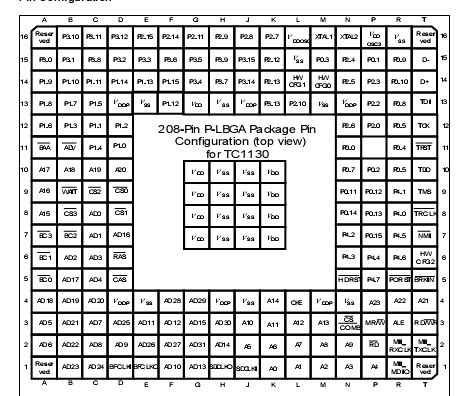TC1130: Features: ` Full-duplex asynchronous operating modes 8-bit or 9-bit data frames, LSB first Parity bit generation/checking One or two stop bits Baud rate from 4.6875 MBaud to 1.1 Baud (@ 75 MHz clock...
floor Price/Ceiling Price
- Part Number:
- TC1130
- Supply Ability:
- 5000
Price Break
- Qty
- 1~5000
- Unit Price
- Negotiable
- Processing time
- 15 Days
SeekIC Buyer Protection PLUS - newly updated for 2013!
- Escrow Protection.
- Guaranteed refunds.
- Secure payments.
- Learn more >>
Month Sales
268 Transactions
Payment Methods
All payment methods are secure and covered by SeekIC Buyer Protection PLUS.

 TC1130 Data Sheet
TC1130 Data Sheet







